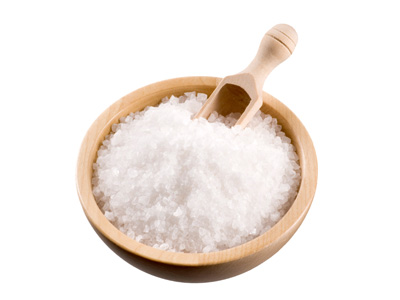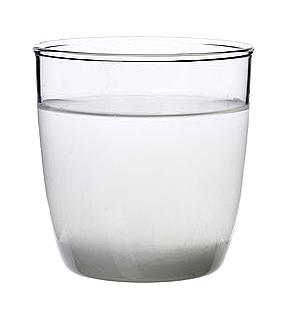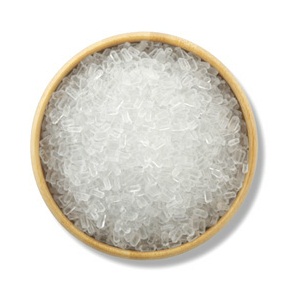Popular Articles
- 35 Herbal Treatments for Acne
- Epsom Salt for Acne and Pimples
- 10 Vitamins for Acne
- When Does Acne Stop for Men, Women, & Teens?
- Tea and Acne - 4 Teas that Help
- 6 Supplements for Acne
- Acne Nodules - Get Rid of Them
- Peroxide for Acne - Hydrogen & Benzoyl Peroxide
- Natural Alternatives for Accutane
- Actimine Supplement Facts
- More Articles ...
 Using Salt for AcneIn This Article
Salt is promoted as a natural treatment for acne. What are the ways that using salt for acne can reduce acne breakouts?
While there are many over the counter and prescription medications to treat acne, many of them come with unwanted side effects. That is why most choose to utilize natural methods of fighting acne. One of the most popular methods is salt. Many acne sufferers have turned to using salt for acne, because salt itself – particularly sea salt – may have natural properties that reduce the appearance and frequency of developing acne. What is the Relationship Between Salt and Acne?
Salt for acne has long been a popular natural cure for acne buildup.
Today, salt and acne have a love/hate relationship. While salt may have skin clearing benefits, salt may also be one of the contributors to acne buildup. Salt and Sodium in Your DietContrary to popular belief, salt does not cause acne. Salt is the primary source of sodium in foods. Many experts have posited that excess sodium intake may be one of the causes of breakouts. There is currently no research that supports the idea that excess sodium causes acne. However, there are several things to note about the link between salt and acne:
In addition, some dermatologists believe that iodine intake may be a cause of acne inflammation (though not a cause of the acne itself). Iodine is a popular mineral added to salt. Others disagree with this analysis but have confirmed that iodine may have some link to acne severity. Some also believe that iodine may lead to excess facial skin oils. Still, no direct link between an increase in salt intake and an increase in acne appears to exist. However, every individual processes food in different ways. Reducing your sodium intake may beneficial for you but not for someone else. Thus it may still be something to consider despite the lack of evidence, especially if your sodium intake is too high. Salt Water for AcneWhile salt may not cause acne, using salt water as a face wash is often promoted as an easy and worthwhile treatment option or acne buildup.
Little research has been conducted as to why salt water is effective at relieving acne symptoms. One theory is that salt reduces bacterial buildup. This theory has some merit because salt is often added to foods in order to kill bacteria and prevent food from spoiling. Still, there is not a great deal of evidence to support this theory. More likely, the benefit of using salt for acne is that salt can dry out the face. For those with a lot of facial oils contributing to their acne buildup, this could be advantageous. Salt is a natural, cheap, and simple solution for reducing facial oils. If you choose to use salt for acne, consider using sea salt instead of table salt. Most table salt contains iodine, which may contribute to excess skin oil. Table salt may also dry out the skin too much. Epsom Salt and AcneAnother popular cure for acne is Epsom salt. Epsom salt differs from traditional salt and sea salt because Epsom salt is a magnesium sulfate, rather than a sodium chloride.
Those that have tried Epsom salt report significantly fewer pimples and less pronounced acne with a decrease in inflammation. The mechanism is not exactly clear, and because of the lack of research into Epsom salts, most people that claim to know why Epsom salt is effective may be basing that reasoning on faulty logic. However, the most commonly suggested reasons are:
Whatever the benefit may be, many people have reported success in treating their acne with Epsom salt. Epsom salt is also very popular for acne in other areas of the body – like back acne and chest acne – because Epsom salt baths are considered safe and gentle for the skin. As with any treatment option unsupported by research, you should not assume that Epsom salt will be effective. But because of the safety of Epsom salt and the frequency of reported benefits, using it for acne may be worth attempting. Salt Scrub for AcneAnother way that people are using salt for acne is with a sea salt scrub. Salt scrubs are a method of exfoliating – removing dead skin cells so that healthy skin cells can shine through. This is one of the primary reasons that salt scrubs are a popular spa treatment. Salt scrubs can be purchased in a store or found in most spas. Salt scrubs can also be made at home using some type of massage oil or almond oil, sea salt, and essential oils (generally added to produce a gentle smell). Salt scrubs are a natural way to exfoliate the face and body. Some people suffer from acne caused by a buildup of dead skin, or they may struggle to shed skin leading to an increase in blackheads. Both of these may contribute to further acne buildup. Salt scrubs are a quick and easy way to exfoliate this dead skin and allow for greater skin renewal. Acne and Salt – A Complicated RelationshipAcne is a common condition that affects the appearance of millions of teenagers and adults. Salt is considered one of the most popular natural treatment options, despite some believing that salt intake may contribute to acne buildup. Little research has been conducted as to the effectiveness of using salt for acne. But there are many experts that strongly recommend salt as an acne solution. Because of salt's relative harmlessness and the ease of finding salt at grocery stores, salt may be a worthwhile option to consider, but until research proves that salt can relieve acne, it should not necessarily be the only option you try. Sourceshttp://www.logan.edu/mm/files/LRC/Senior-Research/2004-Dec-14.pdf Hitch JM, Greenburg BG. Adolescent acne and dietary iodine. Arch Dermatol. 1961;84:898–911. |
||||
| Next Article: Aloe for Acne Treatment |






 Most saltwater is simply a mixture of salt (primarily sea salt) and water.
Most saltwater is simply a mixture of salt (primarily sea salt) and water. Like other acne and salt
Like other acne and salt